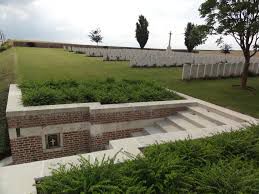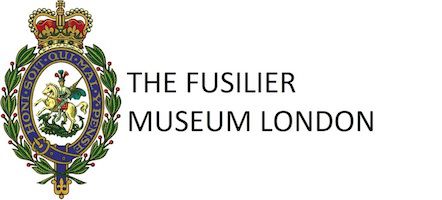Between 1914 and 1920, over 3,000 soldiers were sentenced to death by courts martial for cowardice, desertion, casting away arms, even falling asleep on duty. The vast majority of the death sentences passed were commuted.
On the 7th November 1918, just four days before the armistice, Privates Louis Harris and Ernest Jackson were shot at dawn for desertion and cowardice. They were the last British soldiers shot for military offences in the First World War.
Pte. Jackson (24th Battalion Royal Fusiliers) had been conscripted in July 1916 and sent to France in November of that year.
In April 1917, Jackson went AWOL, Absent Without Leave, for 28 hours, and for this was sentenced to two years in prison. Usually these types of sentences were suspended, in Jackson’s case however, he spent 16 months in prison.
He returned to his Battalion in August 1918, but on 29th September he had gone AWOL again near Flesquieres, whilst waiting to be transported to a military hospital via field ambulance. He was found and arrested by military police and returned to his unit at Noyelles on 3rd October where, just a few hours later, he vanished again and was arrested near Douellen the next day. His weapons and equipment were found on 8th October, close to where Jackson had disappeared.
Jackson faced a Field General Court Martial (FGCM) on three charges; going AWOL on 29th September, desertion on 3rd October, and ‘shamefully casting away his arms, ammunition and equipment in the presence of the enemy’ on 4th October. Going AWOL was not an executable offence, but the desertion and casting away of arms were.
 At his tribunal, Jackson stated he left ‘because I could not
stand the treatment I was receiving. I wanted to get away from everything…I
have been looked down on by everyone and that is the cause of my being here
today.’ His Company Sergeant Major also called him a ‘gaol-bird’ in front of
everyone in the company and promised to make Jackson’s life ‘a misery’. He
added that both his mother and father had died in insane asylums and revealed
that he himself suffered from mental health issues ‘caused by worries’.The FGCM showed no leniency to Jackson, nor did his
Commanding Officer, who stated that ‘cowardly conduct of this kind should be
made an example of.’ He was taken to the small village of St Python in Northern
France, and was shot at 06:10, aged 32. Jackson was buried at Romeries Communal Cemetery, Nord, France.
At his tribunal, Jackson stated he left ‘because I could not
stand the treatment I was receiving. I wanted to get away from everything…I
have been looked down on by everyone and that is the cause of my being here
today.’ His Company Sergeant Major also called him a ‘gaol-bird’ in front of
everyone in the company and promised to make Jackson’s life ‘a misery’. He
added that both his mother and father had died in insane asylums and revealed
that he himself suffered from mental health issues ‘caused by worries’.The FGCM showed no leniency to Jackson, nor did his
Commanding Officer, who stated that ‘cowardly conduct of this kind should be
made an example of.’ He was taken to the small village of St Python in Northern
France, and was shot at 06:10, aged 32. Jackson was buried at Romeries Communal Cemetery, Nord, France.
Four days later, the armistice had brought an end to the fighting and all death sentences were commuted to penal servitude. Over a decade later in 1929, the death penalty was abolished for military crimes, and in August 2006 the servicemen executed for said offences were officially pardoned.
The Shot at Dawn Memorial at the National Memorial Arboretum, opened in June 2001, is a tribute to servicemen like Jackson, in recognition of the injustice they faced.
